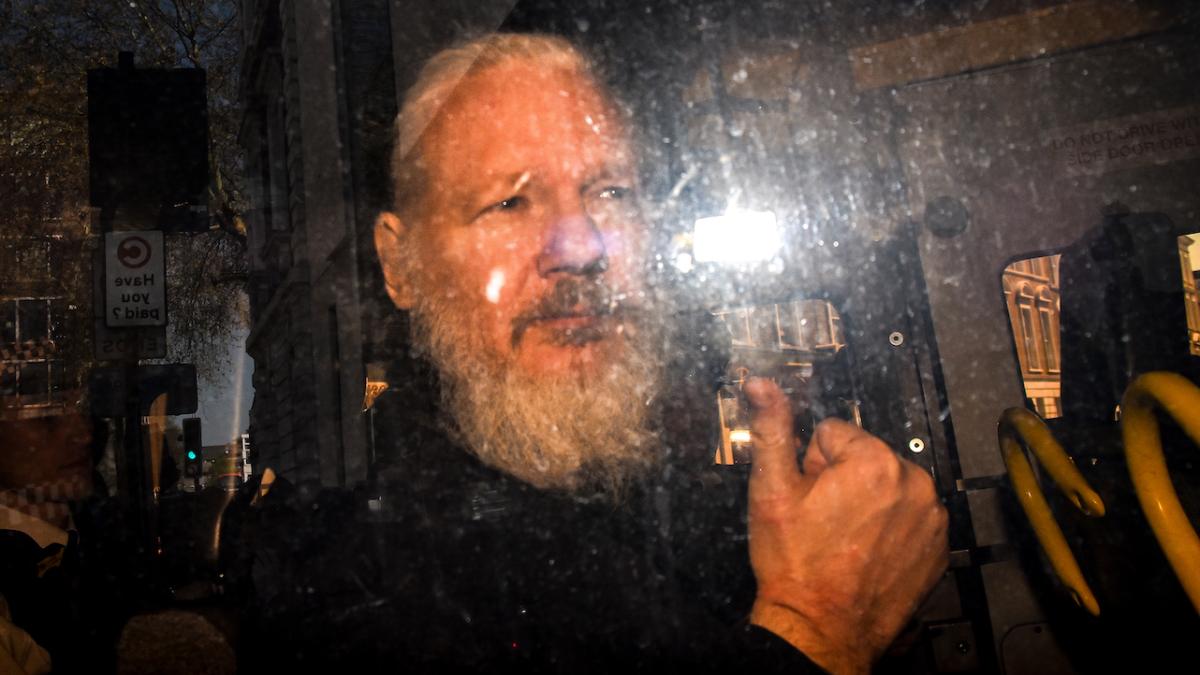
Julian Assange will not be extradited to the US, a UK court has ruled. However, it wasn’t the win for freedom of speech his supporters had hoped for, but rather a concern that the conditions a US prison would subject Assange to would drive him to suicide.
This saga – more than a decade in the making – isn’t over yet. Here’s where we’re at.
Why is Julian Assange in prison again?
It all started in April 2010, when Assange’s website WikiLeaks released a classified US military video taken from an Apache helicopter, showing the unprovoked killing of more than a dozen people in Iraq, including two Reuters news staff.
Later that year, WikiLeaks released hundreds of thousands of diplomatic cables, which at the time was “the largest set of confidential documents ever to be released into the public domain“. The US government launched a criminal investigation into WikiLeaks, and whistleblower Chelsea Manning was later imprisoned for leaking them the cables.
However, the reason Assange was holed up in the Ecuadorian embassy in London for nearly a decade was because he was wanted on sexual assault charges in Sweden. Assange feared that if he was extradited to Sweden, he would ultimately be extradited to the US to face charges over WikiLeaks.
Sweden dropped the case against Assange in May 2017. (And although prosecutors announced they had reopened the investigation in May 2019, it was dropped again just six months later.)
Then, in April 2019, Ecuador withdrew its asylum and invited UK authorities to arrest Assange for failing to surrender to the court – which they did. Assange was found guilty, and in May 2019 was sentenced to 50 weeks in jail for breaching bail conditions.
While he was in prison, Assange was indicted on 17 charges related to violating the Espionage Act, in addition to the one charge of conspiracy to commit computer intrusion (relating to Chelsea Manning) he was already facing,
It means he faces a sentence of up to 175 years in prison.
Okay, I’m caught up. What’s going on now?
A London court ruled that Assange should not be extradited to the US on the bases that his mental condition and the US prison system put Assange at risk of suicide.
Crucially, Judge Vanessa Baraitser rejected nearly all the arguments of Assange’s team, including that the charges were politically motivated.
She agreed with the US government that Assange’s conduct went well beyond that of a journalist or whistleblower, and that his human rights would not be violated if he faced trial.
However, she agreed that Assange would be at risk of suicide, citing the “near total isolation” he’d likely face in the US justice system, his diagnoses of autism, and his suicidal thoughts.
“Faced with the conditions of near total isolation and without the protective factors that moderate his risk at Belmarsh [the UK prison where Assange is detained], I’m satisfied that the procedures described by the US will not prevent Mr. Assange from finding a way to commit suicide,” Judge Baraitser said.
“For these reasons I’ve decided that extradition would be oppressive by reason of Mr. Assange’s mental health, and I order his discharge.”
This is an interesting point:
The US will appeal, but they’ll have to argue that their prison system is fine and capable of preventing high-profile people from killing themselves. Good luck with that.
— Matt Bevan ???? (@MatthewBevan) January 4, 2021
What happens to Julian Assange next?
For the time being, Assange will remain in prison in London until next Wednesday, when a bail application will be made. It’s not clear if a bail application is likely to be accepted or denied.
The case isn’t over by any means – the US Department of Justice said it will continue to seek Assange’s extradition, so appeals to London’s High Court and even the UK’s Supreme Court seem likely. This is going to drag on for much, much longer.
In a twist, Mexico is now offering Assange asylum. Mexico’s president, Andrew Manuel Lopez Obrador, has long been a supporter.
“Assange is a journalist and deserves a chance. I am in favour of pardoning him,” Lopez Obrador said, reports the SMH.
“We’ll give him protection.”
Assange could also, eventually, return home to Australia. Speaking to 3AW this morning, PM Scott Morrison said he would be free to return home if all charges were dropped.
“If that all turns out, he’s like any other Australian, he would be free to return home if he wished,” Morrison said.
“That would be a matter for him when those proceedings and processes end.”
What about a Donald Trump pardon?
Assange’s team have been appealing to Trump to pardon Assange in the final days of his presidency. So far, those calls appear to be falling on deaf ears; Trump is mostly pardoning his associates who were found guilty of various crimes, including Roger Stone, Paul Manafort, and Jared Kushner‘s dad Charles Kushner.



